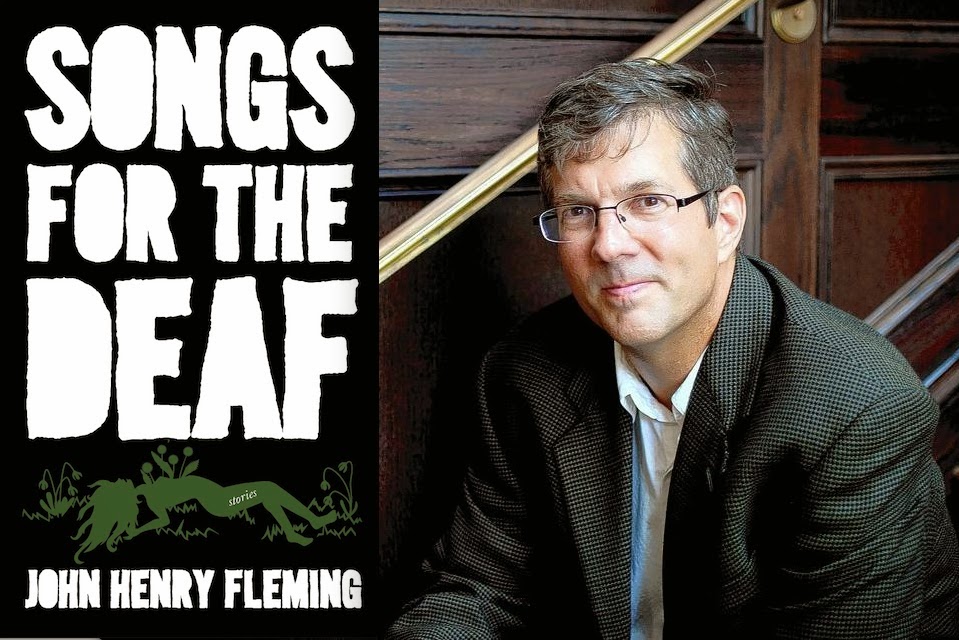In the seventh in a series of posts on 2014 books entered for The Story Prize, John Henry Fleming, author of Songs for the Deaf (Burrow Press), suggests writing both for a potential audience of aliens and for oneself.
Writing tips are like fresh raspberries—so beautiful and enticing on the grocery store shelf, so moldy the next day. That’s my experience anyway. Still, they can give you a way of thinking about your work, a charge that gets you from one synapse to the next and keeps the words flowing. I offer advice in that spirit, hoping you’ll refute every statement with your own stories.
- Write like it’s true. Even when you’re faking it and have no idea what you’re talking about, pick out the one or two things that are true and make the story about those things.
- If you’re playing around, write like playing around is important to you. If you pull it off, playing around will be important to the reader, too.
- Write jagged. If things are interesting enough, the reader will make connections and supply meanings for you. If things aren’t interesting enough, no amount of explaining will fix that.
- Still, it’s best to keep the story under the frustration curve, best pictured as the arc of a book as it flies across the room toward the garbage can.
- Write like your story will be the only one to survive the apocalypse. Your small post-apocalyptic audience will want to know what things were like. And don’t assume they aren’t aliens.
- Write like no one cares what you write. Be honest, it’s not such a stretch. The truth is, most people don’t care what you write, probably even most of the people you know. That fact is depressing only if you’re writing for the wrong reasons. If you’re writing for the right reasons, it’s liberating.
- Just write. Forget everything else. The antidote to not writing is to write. The antidote to not feeling inspired is not expecting to.
- Stop repeating yourself. Try new things—new forms, new character types, new styles and tones. You’re never going to do that one thing perfectly, so stop trying and move on.
- Don’t be afraid to smash up your story and assemble something new from the pieces.
- Don’t ever forget that you’re writing for an audience, but think of yourself the first member of that audience; write things you want to read.
- Write each work like it’s your last. It could be; you never know.
- Above all, be interesting. Henry James said so, and he was right.
